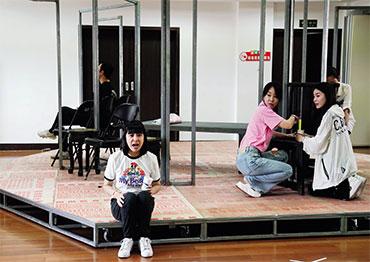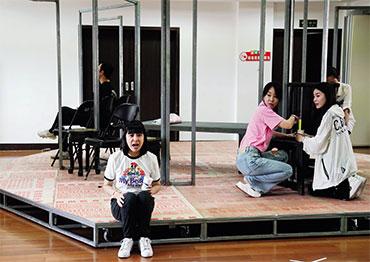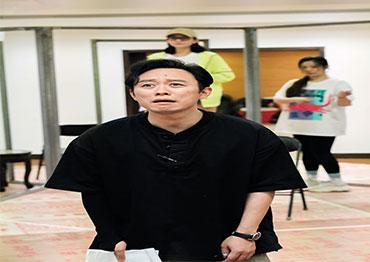Modern Chinese drama began in the 1910s during the New Culture Movement, which criticized classical Chinese thought and promoted local interpretations of Western ideals.
Chinese drama flourished in the 1950s and early 1960s. Modern literary masters Lao She and Guo Moruo collaborated with famed theater director Jiao Juyin on classics including Dragon Beard Ditch (1951), Tiger-shaped Tally (1956), Teahouse (1958), Cai Wenji (1959) and Wu Zetian (1960). During this period, intellectuals were often portrayed as pioneers fighting against traditional feudalistic values.
However, the theater’s spotlight went dim during the Cultural Revolution (1966-1976). Intellectuals were officially condemned as “spiritually corrupt” and labeled “spokespeople for decadent capitalism and bourgeois lifestyles.” Many were persecuted, including Jiao Juyin and Lao She, who was driven to suicide in 1966.
In the late 1970s and 1980s, after China’s reform and opening-up, intellectuals, once again, were portrayed as idealistic and promising vanguards of a new era.
In 1978, In the Silence, a play by Zong Fuxian about the lives and minds of intellectuals, became a modern classic. The drama tells about a family involved in an incident in 1976, during which a memorial for the late premier Zhou Enlai in Tiananmen Square turned into a public demonstration against the extreme left and for the liberation of thought.
In the 1990s, with the rise of the market economy, theater grew more diverse. Experimental arthouse plays, such as I Love XXX (1994) and Rhinoceros in Love (1999) by avant-garde theater director Meng Jinghui, profoundly changed the landscape of Chinese theater.
However, as social values veered toward materialism, intellectuals were increasingly depicted on stage as lost, upset and self-pitying. They were not changing with the times, struggling between their utopian ideals and a bleaker reality.
In the past decade, a handful of plays have explored the “scholarofficial,” the highly educated elite class of imperial China. The impact of their cultural legacy and spirit continues to influence intellectuals today. Among them is Wen Fangyi’s The Face of Chiang Kai-shek, a play inspired by an historical anecdote that circulated Nanjing University for years.
In 1943, Chiang, leader of the Kuomintang and chairman of the Nationalist government, was also president of Nanjing University. Chiang invited three of most respected Chinese literature professors to dine with him. This put the professors in a very difficult position. They discussed whether to go to the banquet. During the Cultural Revolution (1966-1976), the three men were investigated about the meeting. Facing persecution, each remembered the incident differently. The play gives a penetrating depiction of the ambivalent, conflicting and complicated inner world of intellectuals when dealing with authority.
Li Bonan told NewsChina that after reading the script for The Man with Moveable Parts, many performers told him it was “exactly like their life.” He was a bit confused at first – why would actors relate to characters from a different era and profession?
“Later I realized that perhaps they resonated with the frustrations and conflicts of marriage, the fruitless but ceaseless attempts of one spouse trying to change the other, the struggles of souls torn between dreams and reality – these are all eternal themes,” Li told NewsChina.

 Old Version
Old Version

